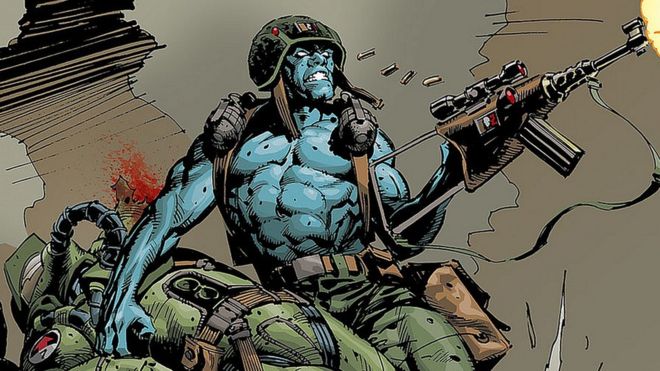I wrote an article about this for this month’s Fanzine at the weekend. This month’s fanzine is all about adventure writing and I was discussing three approaches.
The first is what I am dabbling with at the moment. Having every encounter multi statted for low, medium, high and very high level groups. That is what we did with the city of forgotten heroes. I also like relative encounters so the number encountered is based upon the number of heroes.
The second option is the traditional way of writing adventures of writing to a specific level and number of heroes. If one were to write a series of adventures this can work. If your party is not the right level right now then eventually they will reach the right level or if they are too high then one day you will start a new campaign.
The third way that I was discussing is writing for a fixed level, I picked 7th level as it gives a nice balance between competent PCs yet not too powerful. Every adventure is written for 7th level but it also comes with a selection of pregen characters.
The reasons I am suggesting this is because RM is incredibly hard to write for. There are just too many optional rules the shift the power level up or down that a stock NPC will either be totally out classed or will wipe the floor with the party. If each GM is having to rework the adventure anyway to make it work with their house rules then they are just as well off with a well fleshed out adventure concept as they are with a statted adventure. On the other hand if you had a collection of adventures with pregen characters any GM could run an introductory adventure for new players off the cuff. We all know that RM is really easy to play but using RAW character creation is a real chore. So starting everyone off with pregens means that new players get a good sense of what a rounded character looks like, what skills are useful and how stats and skills interact. This means that you end up with well informed new players when it does come to their turn to make characters.
Another nice thing about packaging pregen characters with adventures is that you get suitable PCs for the adventure. Think of a pirate based adventure and a normal PC group and half the party will have drowned in their platemail before the adventure is half way through. If the next adventure is all camels and desert ruins then knights and lances are still not really suitable.
I would like to see packaged adventures with both pregen characters, say eight or ten potential PCs along with a suitable adventure. This overcomes another ‘new player problem’. If you are not used to RM then rushing into combat and not parrying is a great way to end up dead. If there are spare pregens to hand then the unfortunate player can be reintroduced quickly and easily without having to go though the whole char gen process.
So my answer is that RM needs a culture of bundling pregen characters with EVERY adventure. It makes it easy to introduce new players, it sidesteps the house rule problems and it is justt as functional for experienced GMs as a fully statted adventure.



 The villain in this module was Colderan the Razor and when my players ran through this Colderan survived and has started plotting his revenge against the characters. He has been behind several plots now and in when other modules I have used would have introduced another evil magic user I have substituted in Colderan.
The villain in this module was Colderan the Razor and when my players ran through this Colderan survived and has started plotting his revenge against the characters. He has been behind several plots now and in when other modules I have used would have introduced another evil magic user I have substituted in Colderan.

